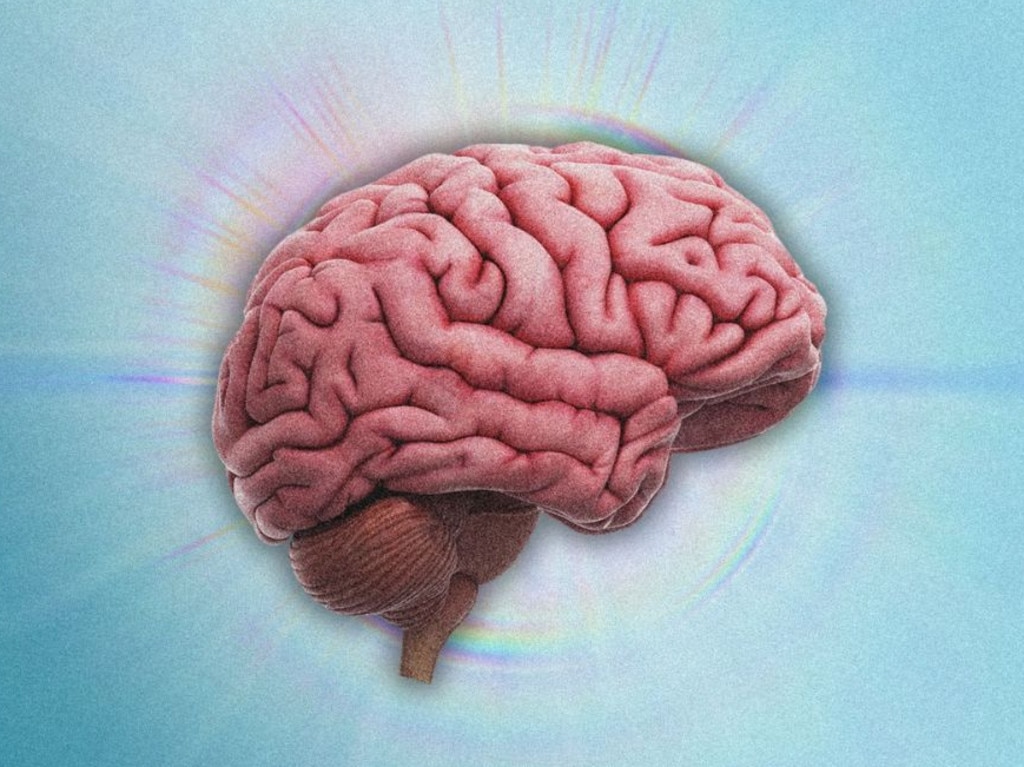New line of defence against dementia could lie in this routine vaccine
It makes sense to include routine adult vaccinations to our list of preventative measures, not only for prevention of common infections, but also for dementia prevention.

It makes sense to include routine adult vaccinations to our list of preventative measures, not only for prevention of common infections, but also for dementia prevention.
We are living at a time when the ageing population is increasing in size, and with age, comes a growing risk of all forms of dementia. Consequently, we are seeing the incidence of dementia double globally every 20 years. The condition puts a terrible burden on the sufferers, their families and caregivers, and most eventually require costly government support over many years.
In our efforts to understand what causes dementia and how to prevent it, observational studies have explored modifiable factors which include blood pressure, diabetes, lipid profile, heart disease, hearing, along with lifestyle, diet, exercise, social engagement, mental health, smoking, alcohol intake, and even geographic location, to name a few. These factors were found to impact the onset across different types of dementia, but what was also found was that having a combination of routine adult vaccinations seemed to be associated with a 35 per cent decrease in risk in all forms of dementia. This was an unexpected finding. In other words, we now know that we can influence the development of vascular dementia and even the expression of Alzheimer’s disease a fair bit through how we choose to live our life and how we treat our bodies over the course of time. Having your regular flu vaccine can also reduce your risk, and having the shingles vaccine reduces this risk even further.
Shingles vaccine and dementia prevention
The shingles vaccination may prevent or delay dementia in up to 20 per cent of older people according to a study recently published in Nature journal. The Standford University researchers followed nearly 300,000 people in Wales over seven years and compared the outcomes of those who received the single-dose shingles vaccine with those who did not and found that the risk of developing dementia was significantly lower in the vaccinated group.
Although the shingles vaccine associated with this finding is the now discontinued single-dose Zostavax vaccine, it is assumed that the positive effect on dementia prevention is more likely due to the prevention of shingles, rather than the vaccine type itself.
Shingles is a painful rash-like reactivation to the chickenpox virus, also known as herpes zoster. It lies dormant in the nervous system following initial exposure, which usually occurs in childhood, and is part of the herpes virus family which includes the common cold sore virus (HVS1) and genital herpes (HSV2), glandular fever or Epstein Barr Virus (EBV), and Cytomegalovirus (CMV).
We have known for decades that there is a link between herpes viruses and dementia from as far back as 1975, and given current statistics are that one in three Australians will develop shingles at some stage, widespread vaccination of the older population could have a significant impact on the burden of dementia overall.
Just as this study showed, most prior studies that demonstrated the protective effect of the shingles vaccine were conducted on the live attenuated vaccine called Zostavax, which has since been discontinued due to its shorter length of efficacy and the risk of serious side-effects in immunocompromised people, such as people who take immunosuppressants for auto-immune disease, or those who are having treatment for cancer such as chemotherapy and radiation therapy. They also happen to be the people who need protection the most, and for longer periods.
Fortunately, we can now recommend the new recombinant shingles vaccine (no live particles), called Shingrix which is delivered in two doses, two to six months apart which is also freely available to anyone 65 in Australia. This newer recombinant version provides longer protection for up to 10 years.
For unknown reasons, the shingles vaccine appears to show a higher level of protection against dementia in women, but it protects men as well. This could just be because women generally mount a stronger immune system to vaccines due to biological sex differences. Either way, it makes sense to have a vaccine that can protect you from an awful disease which causes post-herpetic neuralgia (nerve pain) in up to 20 per cent of people, and which can linger in the form of electric shock-like pain for weeks, months and sometimes years, long after the rash resolves.
Influenza vaccinations and dementia prevention

A large metanalysis of 9124 papers that were published in 2022 isolated 17 high-quality studies that compared the risk of dementia in those vaccinated against influenza virus versus unvaccinated populations, and found that the reduction in risk was as high as 49 per cent in those who had at least four annual influenza vaccinations.
The researchers then reviewed the other studies, looking at other vaccinations, and the findings were that there was a decreased incidence of dementia in people who receive routine adult vaccinations, with up to 35 per cent overall reduction, regardless of the type of dementia. This was equal across women and men.
The protective effect is cumulative and greater with those who have their annual influenza vaccinations, in other words, “people with more full vaccination types and more annual influenza vaccinations were less likely to develop dementia”.
The metanalysis included close to 1.8 million people from across the US, China, Israel, UK and Canada, and although there appears to be a stronger cumulative protective element with annual influenza vaccinations, they looked for any similar association with other vaccinations from the other remaining studies and found this is also evident in those with herpes zoster (shingles), tetanus and diphtheria and pertussis (Tdap), pneumonia, hepatitis A, hepatitis B, and polio vaccines, in declining order of impact. The exact mechanism of this is not well understood as there are numerous other risk factors for dementia. However, these findings are very exciting.
How do vaccines protect you from dementia?
The mechanism by which vaccines protect people from developing dementia is unclear, and there is no simple answer. With respect to Alzheimer’s disease, it is thought that the observed delay in expression of Alzheimer’s in vaccinated people is due to a combination of infection prevention, diminishing the severity of inflammation of the brain, and it is suggested that vaccines may even help the immune system remove amyloid plaques from the brain.
What about Covid-19 infection and RSV?
Covid-19 is an ongoing concern in the community, and we know that there is an association between Covid-19 infection and cognitive decline but this does not seem to be statistically higher than with other viral infections. Importantly, having the Covid-19 vaccine was not associated with an increased risk of developing Alzheimer’s disease. Respiratory syncytial virus has recently received a lot of attention with the introduction of a new vaccine, which has fortunately been approved for infants, children and pregnant women. The vaccine is also recommended for people over 75 years, and at 60 years for First Nations people and those who have other diseases or are immunocompromised. In older people, inflammation of the brain from RSV can cause acute confusion, and its connection with dementia is being investigated.

Vaccines are arguably the greatest medical invention of all time and despite what vaccine sceptics say, there are long-term benefits of being vaccinated, even in later life, so make it part of your annual overall health screens. From what the science is telling us, it is part of dementia prevention.
The current vaccinations recommended include:
- Influenza vaccine
- Covid-19 vaccine
- Pneumococcal vaccine
- Shingles vaccine
- Pertussis, tetanus, diphtheria vaccine (Tdap)
- RSV vaccine.
Magdalena Simonis is a GP, RACGP Red Book reviewer and clinical associate professor in the department of general practice, University of Melbourne.
This column is published for information purposes only. It is not intended to be used as medical advice and should not be relied on as a substitute for independent professional advice about your personal health or a medical condition from your doctor or other qualified health professional.
References:
- A natural experiment on the effect of herpes zoster vaccination on dementia
- Reduced dementia incidence after varicella zoster vaccination in Wales 2013–2020
- The recombinant shingles vaccine is associated with lower risk of dementia
- A potential association between COVID-19 vaccination and development of Alzheimer’s disease
- National Immunisation Guidelines
- Libíková H, Pogády J, Wiedermann V, Breier S. Search for herpetic antibodies in the cerebrospinal fluid in senile dementia and mental retardation. Acta Virologica. 1975 Nov; 19(6): 493-495. PMID: 1996.
- Wu X, Yang H, He S, Xia T, Chen D, Zhou Y, Liu J, Liu M, Sun Z. Adult Vaccination as a Protective Factor for Dementia: A Meta-Analysis and Systematic Review of Population-Based Observational Studies. Front Immunol. 2022 May 3;13:872542. doi: 10.3389/fimmu.2022.872542. PMID: 35592323; PMCID: PMC9110786.
- Pyne JD, Brickman AM. The Impact of the COVID-19 Pandemic on Dementia Risk: Potential Pathways to Cognitive Decline. Neurodegener Dis. 2021;21 (1-2): 1-23. doi: 10.1159/000518581. Epub 2021 Jul 28. PMID: 34348321; PMCID: PMC8678181.
- Libikova, H., Pogady, J., Wiedermann, V., & Breier, S. (1975). Search for herpetic antibodies in the cerebrospinal fluid in senile dementia and mental retardation. Acta virologica, 19(6), 493-495.




